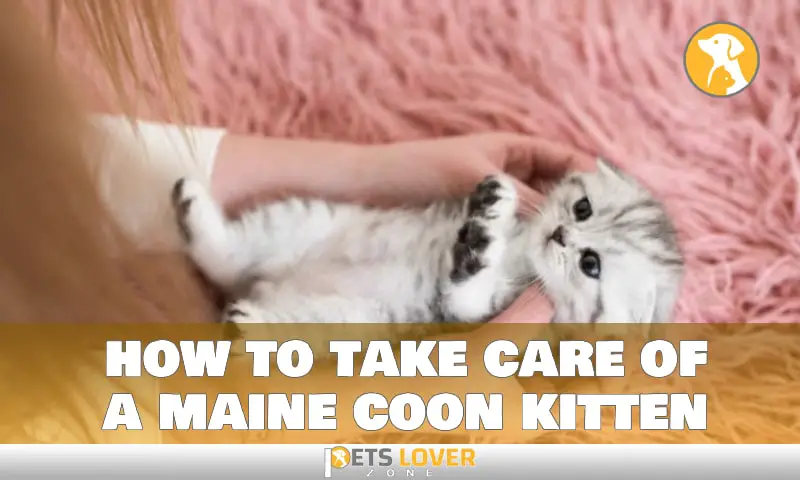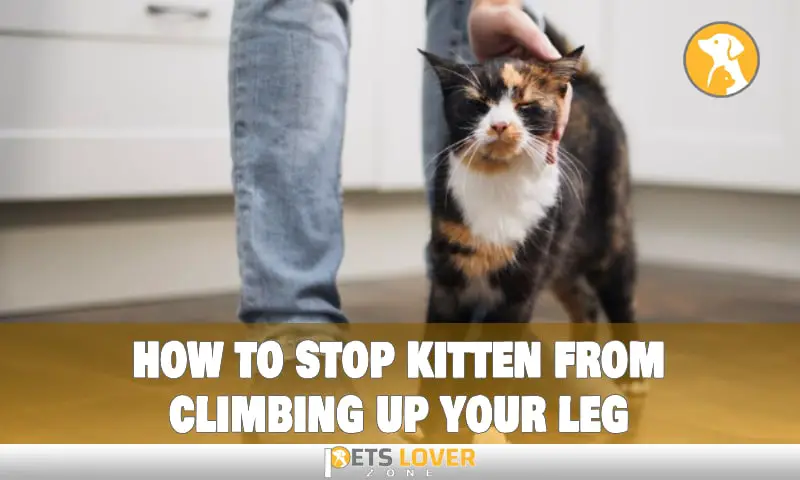To determine if your cat ate your hamster, look for any evidence, such as a missing or injured hamster, or signs of blood or fur. If you suspect your cat has swallowed the hamster whole, seek immediate veterinary attention, as this can lead to serious health issues for your cat.
As a pet owner, it can be distressing to discover that your beloved cat may have eaten your hamster. Whether you found an empty cage or unexplainable injuries on your hamster, it is important to determine if your cat is responsible.
While some signs may be obvious, such as blood or fur, in some cases, your cat may have swallowed the hamster whole. This can lead to serious health issues for your cat, and it is important to seek veterinary advice immediately. In this article, we will explore the signs to look for and what to do if you suspect your cat has eaten your hamster.
What To Look Out For: Visible Clues And Behaviors

Absence Of Your Hamster Or Signs Of Struggle
If you’re missing a hamster from their enclosure, your cat may have caught and eaten them. Additionally, if you notice signs of a struggle, such as knocked-over toys or objects and your hamster’s bedding scattered across the floor, this could also indicate that your cat had a hand in their absence.
Here are some things to look for:
- Missing hamster from their enclosure
- Disturbed or knocked-over objects near the enclosure
- Signs of a struggle, such as scattered bedding or toys
Wet Or Bloody Patches On Your Cat’S Fur Or Around Their Mouth
If your cat has eaten your hamster, there’s a chance that they’ll have visible clues on their fur or around their mouth. Wet or bloody patches on your cat’s fur or around its mouth could be a warning sign to look out for.
Below are signs to look for:
- Wet or sticky fur around the mouth
- Blood or bite marks on your cat’s fur or skin
- Bloody drool or saliva around the mouth
Litter Box Changes Or Weird Smells
If your cat has eaten your hamster, you may notice some changes in their litter box habits. Your cat’s feces may also appear different from what you’re used to seeing. Here are things to take note of:
- Changes in the number of feces in the litter box
- Changes in the smell of your cat’s feces or urine
- Detection of hamster remains or body parts in the litter box
Refusal To Eat Or Sudden Changes In Your Cat’S Appetite
Cats are carnivorous, but a sudden shift in your cat’s eating habits could suggest something isn’t right. If your cat is refusing to eat or having difficulty eating, this could be a sign that they’ve eaten something that’s causing discomfort.
- Refusal to eat or drink
- Vomiting or gagging
- Lethargic behavior or not wanting to play
Increased Aggression Towards Other Pets Or People
If your cat has become more aggressive towards other pets or people without an apparent reason, they may be feeling stressed or in distress. Cats often lash out when they’re feeling uncomfortable or in pain.
- Unusual aggression towards other pets or people
- Growling or hissing when touched or approached
- A change in your cat’s behavior toward you
Hiding Behavior Or Unusual Meow Sounds
It’s typical for cats to hide when they’re not feeling well, and this is no exception when they’ve eaten something they shouldn’t have. Pay attention to unusual meows that your cat may be making, as these could indicate pain or discomfort.
Here are some signs to look out for:
- Hiding behavior or staying in one place for longer periods
- Unusual meows such as wails, yowls, or other uncomfortable sounds
- Lack of interest in typical play activities and toys
Remember that if you suspect that your cat has eaten your hamster, it’s best to contact your vet right away. They can diagnose your cat’s condition and offer the necessary treatment to make your cat feel better.
Understanding The Possible Reasons Behind Cat’s Prey Drive

Cats have strong natural hunting instincts that are fueled by their predatory nature. However, it can be unsettling when you have other furry, small pets in the house. If you’re wondering whether your cat ate your hamster, understanding the potential reasons for your cat’s prey drive might be helpful.
Here are some possible explanations:
Innate Instincts And Behavioral Patterns
Cats are natural hunters, and their predatory instincts are hard-wired into their behavior. Even if they have never been outside before, they might still exhibit hunting behaviors such as pouncing, stalking, and capturing prey. Keep in mind that no matter how domesticated your cat might seem, their feline instincts are still present and can be triggered in different situations.
- Cats are typically active during dawn and dusk.
- Pouncing, stalking, and hunting can be ways for cats to release their energy.
- Cats are skilled hunters that go after anything small and furry.
Past Experiences And Hunting Grounds
The experiences they have had in the past have an impact on cats as well. If they have spent time outside hunting, they might be more likely to have a stronger prey drive than indoor cats who have never experienced hunting.
- Cats that have been through trauma, abandonment, or abuse might hunt as a survival mechanism.
- Even if your cat comes from a domesticated line, their instincts may still be triggered if they smell prey in your home.
- Cats that have hunting grounds inside your home, like fields or open spaces, may be more likely to go after your hamster.
Lack Of Mental And Physical Stimulation
Cats are intelligent animals that require both physical and mental exercise. If they don’t get enough stimulation, they may become bored and restless, leading to hunting behavior.
- Cats that lack physical exercise might hunt as a way to release pent-up energy.
- A lack of mental stimulation can also cause feline aggression and predatory behavior.
- Cognitive games and puzzles can help satisfy your cat’s need for problem-solving and exploration.
Nutritional Deficiencies
Believe it or not, nutrition affects your cat’s behavior. Cats are obligate carnivores, and if they don’t get enough nutrients, they may turn to hunting as an alternative.
- Protein is a crucial nutrient for cats, and a lack of it can cause predatory behavior in some cats.
- Talk to your vet about developing a balanced diet plan for your cat, which will help regulate their behavior.
Environmental Factors And Stress
Stress and environmental factors can also play a role in your cat’s behavior.
- If there have been changes in your home environment or routine, such as a new family member or a change in your work hours, it can cause anxiety and stress in your cat.
- Cats that aren’t comfortable in their environment may exhibit signs of aggression, including hunting behavior.
Other Potential Medical Conditions
In rare cases, your cat’s hunting behavior may be a result of an underlying medical condition.
- Hyperthyroidism, rabies, or brain tumors can all cause predatory behavior in cats.
- Other signs of illness, such as lethargy or excessive grooming, may be present and require a visit to the vet.
Understanding your cat’s behavior is the key to keeping them safe and happy. Hopefully, these potential reasons behind your cat’s prey drive will help you understand why your furry friend may have acted on their instincts. It’s always a good idea to speak with your vet if you’re worried about your cat’s behavior.
Responding To The Situation: Immediate Steps To Take After Suspecting Your Cat Ate Your Hamster

Quarantine Your Cat And Your Hamster’s Cage
Before taking any further steps, it’s essential to quarantine your cat and your hamster’s cage. This will help you ensure that your cat is unable to harm your other pets or cause further damage.
Observe Your Cat’S Behavior And Feed Them A Small Meal
Observe your cat’s behavior. If they have eaten your hamster, they may seem more lethargic than usual. It’s important to feed them a small meal to ensure they don’t get further hungry and crave more prey.
Search For Any Evidence In Their Litter Box Or Nearby Surfaces
Check your cat’s litter box and the surrounding area for any evidence that your cat may have consumed your hamster. You may find bones or other remains that can give you an idea of what happened.
Seek Immediate Veterinary Advice And Care
If you suspect that your cat has eaten your hamster, seek immediate veterinary advice and care. It’s essential to act fast to ensure that your cat doesn’t suffer any ill effects from consuming prey that is not part of its natural diet.
Consider Getting Professional Help If Necessary
Consider getting professional help if necessary. If you’re unsure how to handle the situation, it may be best to get help from a professional, such as a pet behaviorist or a veterinarian. Remember, getting professional help is not a sign of weakness; it’s a sign that you care for your pets.
Above all, it’s important to act fast if you suspect that your cat has eaten your hamster. Take the necessary steps to quarantine your cat, observe its behavior, search for evidence, and seek veterinary advice. Remember, your cat may be behaving instinctively, but it’s your responsibility as a pet owner to ensure the safety and well-being of all your pets.
Preventative Measures To Take As A Responsible Pet Owner
As a responsible pet owner, it is important to take preventative measures to ensure the safety and well-being of all your pets. If you are concerned that your cat may have eaten your hamster, there are steps you can take to prevent this from happening again and keep both pets happy and healthy.
Here are some helpful tips to keep in mind:
Supervise Your Pets And Keep Them Separated When Necessary
- Always supervise your pets when they are in the same room, and keep them separated if you cannot watch them closely.
- Use separate rooms or cages if necessary, especially at night or when you are away from home.
- Never leave your hamster out of its cage unattended, even if your cat seems friendly and well-behaved.
Train Your Cat With Positive Reinforcement Techniques
- Train your cat to respect your hamster and other small pets using positive reinforcement methods.
- Reward good behavior with treats and praise, and discourage bad behavior by redirecting your cat’s attention to toys and other activities.
- Be patient and consistent in your training, and seek advice from a professional if necessary.
Provide Enough Mental And Physical Stimulation For Your Cat
- Cats need plenty of mental and physical stimulation to stay healthy and happy.
- Provide toys, scratching posts, and other enrichment activities to keep your cat occupied and engaged.
- Spend time playing with your cat every day, and give them plenty of love and attention.
Consult With A Veterinarian Or A Pet Behaviorist For Further Advice And Guidance
- If you are unsure how to keep your pets safe and happy, or if you suspect that your cat has eaten your hamster, seek advice from a veterinarian or a pet behaviorist.
- These professionals can guide feeding, training, enrichment, and other aspects of pet care.
- Remember, as a responsible pet owner, you must ensure the well-being and safety of all your pets.
By following these preventative measures, you can create a happy and harmonious household for all your pets. With a little patience, love, and know-how, you can prevent your cat from eating your hamster and ensure that both pets live long and healthy lives.
FAQs
How Can I Tell If My Cat Ate My Hamster?
The signs of a missing or eaten hamster include an empty cage, no trace of your hamster, and your cat acting strangely.
What Should I Do If My Cat Kills My Hamster?
If your cat kills your hamster, remove the hamster from the area to prevent any further harm. It’s also important to give your cat space and time to calm down.
Can I Prevent My Cat From Attacking My Hamster?
Yes, prevent your cat from attacking your hamster by keeping them in separate rooms. Ensure that the hamster’s cage is secure and out of reach of your cat.
Conclusion
The well-being of our pets is of utmost priority, and it’s essential to keep an eye on their behavior and habits. It’s not uncommon for cats to indulge in hunting small animals like hamsters, and it’s critical to identify the signs when they do.
If you notice any unusual symptoms like vomiting, diarrhea, or a lack of appetite in your cat, they have likely eaten your hamster. Keeping your pet’s activities monitored and ensuring their safety should be of the utmost priority. It’s also essential to keep your hamster in a secure and enclosed environment, away from the reach of your cat.
Proper attention and care go a long way in keeping our pets safe and healthy, and identifying the signs of your cat’s actions can help avoid any mishaps.






